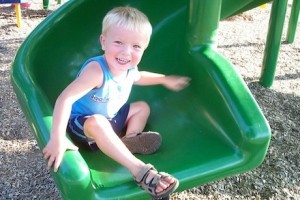Families whose members have autism are invited to join Cincinnati Children’s Hospital Medical Center (CCHMC) to help launch SPARK (Simons Foundation Powering Autism Research for Knowledge), a new online research initiative that will become the largest autism study ever undertaken in the United States. Sponsored by the Simons Foundation Autism Research Initiative (SFARI), the SPARK program aims to collect information and DNA from 50,000 individuals with autism and their families for genetic analysis.
Autism is known to have a strong genetic component. To date, approximately 50 genes have been identified that almost certainly play a role in autism, and scientists estimate that an additional 300 or more are involved. By studying these genes, associated biological mechanisms and how genetics interact with environmental factors, researchers can better understand the condition’s causes, and link them to the spectrum of symptoms, skills and challenges of those affected.
Cincinnati Children’s is one of a select group of 21 leading national research institutions chosen by SFARI to assist with recruitment. The SPARK effort is being led locally by Dr. Craig Erickson, MD and his team at CCHMC.
“SPARK empowers researchers to make new discoveries that will ultimately lead to the development of new supports and treatments to improve lives, which makes it one of the most insightful research endeavors to date, in addition to being the largest genetic research initiative in the U.S.,” says Dr. Erickson.
The SPARK program aims to speed up autism research by inviting participation from a large, diverse autism community, including individuals with a professional diagnosis of autism of both sexes, and all ages, backgrounds, races, geographic locations and socioeconomic situations. The initiative will catalyze research by creating large-scale access to study participants whose DNA may be selectively analyzed for a specific scientific question of interest.
Registration is free and entirely online. Families who sign up will be asked to share a DNA sample through a saliva collection kit that will be mailed to their homes with a return mailer. Samples may be provided by spitting into the tube or by swabbing cheeks and gums. Given that this process may be difficult for some, SPARK has provided a video to help make collection easier. SPARK will also connect participants to researchers, offering them the unique opportunity to impact the future of autism research by joining any of the multiple studies offered through SPARK. SPARK will also elicit feedback from individuals and parents of children with autism to develop a robust research agenda that is meaningful for them.
Families interested in learning more about SPARK should visit SPARKforAutism.org/CincinnatiChildrens or call 513-636-0523.





